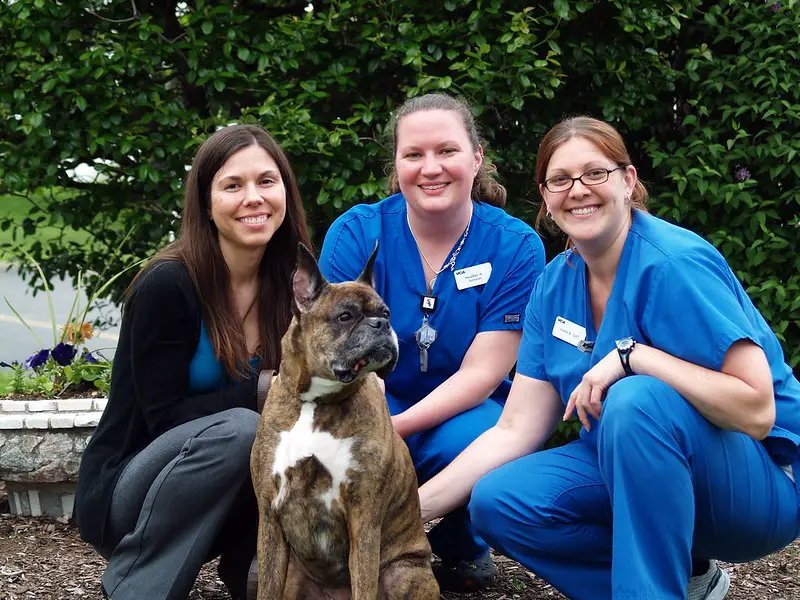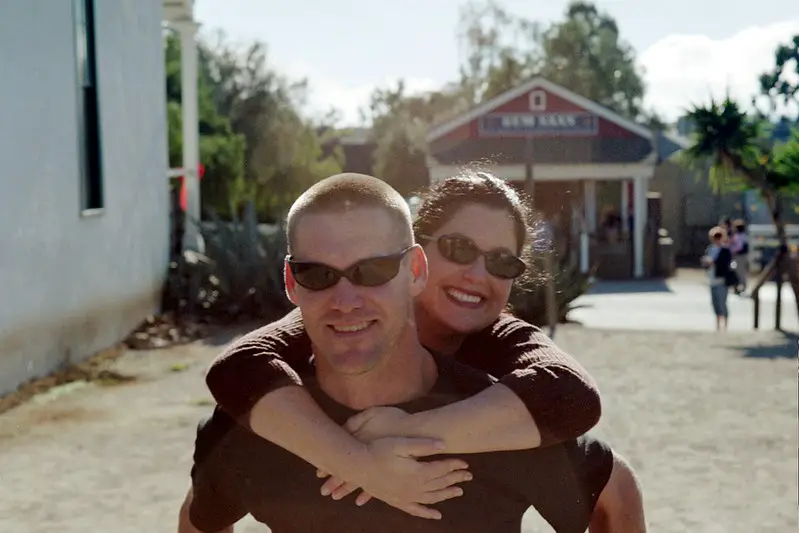Death, the five-letter word that you probably don’t contemplate on, can leave you stuttering, freezing your feelings in mortal fear. If you stay in the West, it’s possible you’re immersed in a positivity-obsessed culture that evades the matter. Therefore, death stays in the extreme corners of the mind.
However, what if discussing death and becoming accustomed to the notion could make the process a bit less painful? It’s certainly not going to be fully easy to take it in; however, explaining what dying might seem like can toughen your life moving forward. If you are aware of what to anticipate, the different phases of death won’t hit you.
How can you tackle having a terminal diagnosis? What will be different in your relationship with your spouse? What is the purpose of fear and denial? These chapters will look at those questions and a lot more. After you have read these chapters, you’ll be better prepared to handle the view of dying and enduring grief, the unavoidable outcome of the death of a loved one.

1 – The shock of a terminal diagnosis is horrifying, and you need time off to calm yourself.
There’s no choice–knowing about your terminal diagnosis will unexpectedly leave you in a difficult situation. Getting to know about this news has been termed as a bad acid journey or entering an unreal upside-down world. One instant you’re fine, the next minute, everything is cruelly changed.
The initial thing to do is to go back to some form of normality. For those first twenty-four hours, you need to remain calm. There are some things to do that can assist you with this.
Visit places where you are very comfortable with, where you feel safe and secure. That might include going to the cinema and watching the recent Hollywood blockbuster, or staying under your duvet and binge-watch your favorite TV series. Or maybe go to your favorite park or a quiet place near nature.
Also, remember to reach out to people who will be most supportive like your family and friends, close and far, with whom you have a close relationship with. It’s significant to share the weight. Also, don’t be scared to do whatever feels familiar and good. Maybe a beer or a full bucket of ice-cream. It’s good not to check your situation on the internet now – there can be much trash to see. In time, you might need to do your own research, however, you don’t have to do that instantly.

Lastly, there are a lot of things you certainly shouldn’t do.
You shouldn’t stop smoking or drinking or any coping mechanism you have. You might need to do that the next day, However, for now, allow yourself to get comfortable in anything that decreases this shock. Don’t be in a hurry into dramatic choices. Don’t go out of the doctor’s consultation room and instantly get a divorce or buy a Lamborghini. Don’t post anything about it on social media. Let yourself get some space from that world, which may look small in your present state.
And definitely don’t get certain treatments, conventional or experimental. That needs calm discussion, two things that you are not capable of doing at that moment. This second will never be simple; however, these things will prevent you from crumpling in on yourself. The best thing to do is to become comfortable and attempt not to make things too difficult.
2 – If you’re nearing the end of your life, it’s important to have a huge clear-out.
Except you’re an Egyptian pharaoh, it’s improbable that you’ll have more than a suit or dress with you in your grave. Therefore, it important to reorganize your properties as you near the end of your life.
This process isn’t simple. However, it’s possible that it will be the only time in your entire life that you’ll check each and every item in your belonging and reflect the importance of it. Maybe you’ll think with pride on an old diploma certificate, or remember a long-time family vacation when you see a funny souvenir.
Also, this clear-out will serve as a blessing for your loved ones. In those painful months after their death, your relatives will have the ability to fully concentrate on you and their grieving process, instead of clearing out your belongings.
Sydney Mintz the American rabbi asserts that there’s a huge difference in the grieving process when a person dies and their house is already tidy. The process of arranging through your belongings will not be simple. However, it’ll save time, money and heartache if you just leave the things you want to pass down, instead of a full house of unpacked junk.

There are manners in which you can take to make the clearing-out process simpler. Because there will be a lot of things like old heirlooms to quirky, sentimental objects – that your family will want to have, you’ll have to share them equally and thoughtfully. In order to evade any pain, be sure about what you’ll give to who and the reason why.
When you figure out who to give what, put a piece of masking tape on the back or underside of every item and put the person’s name you want to give. Another method to figure out who you will give is to perform a “round-robin.” Call your loved ones to come over and tell them to pick one item until everything is picked.
But, you decide to part with your old things, making this process simple can be one of your nicest parting gifts. In the following chapter, we’ll discuss clearing out another kind of attic – the one we occupy with secrets and guilt.
3 – It’s good to ensure that you won’t have your secrets revealed after your death.
The final imprints you leave on earth are significant – those last discussions form how you’re remembered on an emotional level. Due to that, resolve any ill feelings, worries or huge secrets while you can.
It’s better to talk about everything you have to say before it gets really late. For example, if you have children, ensure that you say the very simple things. It’s essential, on an extreme level, for a child to understand that their parent is proud of them and also loves them.
As a matter of fact, according to physician Ira Byock, he said in his book The Four Things That Matter Most that “I love you” are the words that people yearn to hear mostly. Besides, saying to a child that they are loved is a skill that keeps getting psychological rewards later on in life. Those who have never heard of those words are disturbed by nervousness and uncertainty.
Also, reconciliation is essential late in life. Even if the pain that you’ve initiated will no longer mean anything to you once you’re dead, it’ll remain with those that are living. Therefore, once more, say small things like “I’m sorry” and “please forgive me.” Even though your apology doesn’t get accepted, it’s good to try.
Afterward, ensure that you have no secrets that can be traced without you there to clarify them. Ensure that you have nothing in your old diaries, drawers and computer files that could shock your loved ones. If you have any, try to explain before it gets too late or choose a friend you trust to clean up the things you want to keep hidden.

Any actual huge secrets should possibly be revealed –for instance, those secret children or partners – because presently there are extensively accessible online services that can expose the truth through DNA testing and marriage records.
Here’s an example that shows the significance of telling big secrets. A man was married and he had a son, then he had an affair – which produced another son who stayed as a secret. After the death of the man, one son communicated with the half-brother he’d never seen, and they got really close in their shared grief. Instead of anger, they felt sad at not being able to share this close bond with their father.
All in all, we should be bold enough to say the truth while there is still time because the truth will eventually be revealed. And in the absence of you there to explain, it can be tough for your loved ones to handle.
4 – Leave something that is really tangible behind, so friends and family can remember you for that.
When you are dead, how will people remember you? What are the truths you’d like to leave behind for your loved ones? These are the questions that the majority of the people ask themselves when their life is coming to an end.
For instance, when the Allianz Life Insurance Company of North America surveyed baby boomers, they saw that just 10 percent believed that it was very significant to inherit financial assets and real estate. While 77% assert that getting “values and life lessons” was really essential. Therefore, it is import to ensure that you leave behind what describes you qualitatively instead of quantitatively.
Also, values and life lessons that could include things that you formed like a poem, a set of recipes, a slideshow, a film or a painting.
Think of the story of one librarian that died recently, Jane. When Jane’s family members were checking her things, they saw a list she’d created of her entire favorite novels. Her family shared this list between close friends and relatives, and each person decided to read a book as a means of remaining close to her.

If you never had or kept a diary, think about leaving a record of who you were. You might reason, “Who would want to know about my irrelevant life story?” Well, visualize seeing the diary of your great-great-grandmother. It’d definitely be a mesmerizing document, right? You could read about her everyday habits and thoughts from a lot of decades ago. It’s the exact thing with you. There’ll definitely be someone – a loved one or a future relative – who’ll drink in all your thought.
You can start this record or diary with some questions that serve as prompts. How was your room, while growing up? Who did you love best? Where were you happiest?
Also, you can leave behind a letter for the people you love in order for them to read in the future. Maybe, you might provide advice for your children, to direct them through difficult times. The most secure way to pass this letter across is to leave it with a family friend or relative who will deliver it on a specific time– on a special birthday or life event, for instance.
5 – Fear, as well as denial, are normal reactions to death.
As we near death, fear and denial can appear in the most devastating way. Nevertheless, we should bear in mind that both are normal, essential reactions to dying.
The fear that accompanies dying is different from any other type of fear. It’s not a fear that can be seen externally –such as a fear of snakes or mimes –however, a mortal fear, one that comes with the understanding that we will cease to exist soon. As it was said by the modern Buddhist teacher, Pema Chödrön that, “Fear is a normal reaction to approaching the truth.” However, what exactly is the fear that accompanies dying? Dying is regularly a peaceful process, very difficult for those seeing it than the person really experiencing it.
Instead of the process of dying, maybe this is a fear of missing out when you know that your time on earth is limited. It’s the dread of not living your life while you still have it. Due to that, fear can drive us into action and encourage us to grateful for what we have left.
Another normal reaction to death is Denial. As a matter of fact, it can be a beneficial coping mechanism, a shield against the difficult fact of our death. Certainly, it’d be impossible to leave the bed if we had to face that certain truth always.

Take Lance as an example, a company president who chose not to google his brain tumor diagnosis – stage 4 glioblastoma, and usually terminal. Instead of allowing this knowledge to break him, he didn’t allow the thought of dying. He kept doing his high-profile duty and look after his wife and kids as he normally would.
This denial, so to say, signified that he could work in a manner that might’ve been impossible if he accepted his diagnosis. His wife Nancy knew about his terminal sickness and considered that it was the appropriate manner for him to deal with it. Basically, his denial was his wish to live. It strengthened him in a way that accepting his diagnosis wouldn’t have permitted.
Fear and denial are normal, natural reactions to death that have a deep connection. Even though knowing about these feelings won’t lessen their strength, maybe it’ll make them less difficult when they occur.
6 – When approaching death, you need to protect what’s very significant in your partnership.
When you’re ill, your partnership will change a lot. Instead of the life you’ve formed together, with its shared duties, dreams, and passions, you’ll regularly be a patient, and your partner a caregiver. It can put a terrible strain on your relationship.
It’s significant to remember what brought you two together initially. Instead of worrying and griefing, take time to recall the reason why you first fell for each other. Remember the old jokes you shared, the places you visited that you were happy together, your best food, books that you both loved –the entire exceptional, idiosyncratic things that brought together.
However, find new things to share. If likely, have new routines; for instance film night, reading aloud to each other or stopping at an ice-cream shop. If you can’t do those things, what of a sip of sherry at medication time, or one kiss for each tablet taken?
Also, it is essential not to avoid the hard thing. The stress of terminal illness can be really difficult for both of you to withstand. This signifies that sometimes one or both of you will get annoyed, angry or resentful.

However, don’t avoid this. These are normal, human reactions– it’s right to quarrel and be grumpy sometimes. The worst thing you to do is act like everything is okay. If you did, you’d put losing the affection and honesty you share with the person at risk. Now, try not to deny each other of the whole range of human emotion, since that is what makes you who you are together.
Having a sexual relationship might be very hard, for a lot of reasons like medical and psychological –however, it’s not impossible. Neither should sex be seen as the only type of physical intimacy you can have. Hugging, sleeping next to each other and playing with each other’s hair are all means to regenerate your connection.
Crucially, the idea is to make this new, strange reality and your own. Don’t allow it to be defined basically by illness.
7 – After the loss of a person you love, don’t put a lot of stress on yourself.
When the end eventually happens to your loved one, there is only a bit that anyone can say or do to make you will better. Your world will shrink to this loss– they were present, and suddenly surprisingly gone. Therefore, you need to prioritize self-care and calmness.
Allow yourself to process this instant change. If you were with your loved one when they passed on, there are some official things you’ll have to do. For example, if they die at home, you have to call a doctor to state them officially dead, and then call the funeral people.
However, the most essential, this is a chance to process this weird, disturbing moment. You don’t have to rush to move your loved one if you’re not ready. Remember, except your loved one had a dangerous contagious sickness, their body is not harmful. For some people, it assists in the grieving process to spend time with them bidding goodbye.
One funeral director the authors communicated with says that her best calls are from those who’ve used a good time with their loved ones after they’ve died. She describes a call from a woman who lost her husband two days before the call. The family had bathed him, wore his best suit and combed his hair. They had fully bid their goodbyes and were really ready– to let him go.

The next few days after the loss of a loved one, don’t put any form of stress on yourself. Someone you loved just died, whom you still love, and the world will look really strange and seem like a disturbing place.
Therefore, do just the things that make you feel most comfortable. That might include accepting grief and hiding from the world. Going for a stroll might be beneficial–walking can feel good. The right thing for you could be consuming full chocolate brownies or a bucket of ice-cream. Enjoy a glass of something with someone else, or buy something nice for yourself, something that you have always wanted for a while.
Do whatever makes you feel comfortable. Don’t anticipate a lot from yourself. Just survive this shock the best manner you know-how to. In the following chapter, we’ll look at what happens next.
8 – Grief is a foreign place, however; don’t attempt to leave that place immediately.
After the perplexing feeling of loss, there will be a time of extreme grieving. Though it might be nearly a lot to handle, the way you’ll accept grief is to allow everything to move through you just like a wave. Don’t attempt to ignore or avoid it.
You’ll never forget the death of a person that is really dear to you; however, the rawness during the first six months won’t stay permanently. In due time, it will calm as you seek for acceptance. However, this rawness is a part of the normal and healthy grieving process. As a matter of fact, it’s a way of loving that person, their accustomed face, voice, and touch – all the things that you’ve lost.
Certainly, for a lot of people, it’s significant to face this pain. One of the authors talks about the loss of his sister, whose death he didn’t grieve well, because he was eager to reach the “other side” of grief. Afterward, he regretted not completely allowing that sadness. Feeling that intolerable sadness, he eventually understands that it was his last opportunity to be near her. Definitely, together with the grief is the sweetness of remembering that person, and in that pain, there are instants to enjoy.

It’s essential to embrace this first stage and not be in a rush to go back into daily life. Therefore, take a break from work if you can. Unfortunately, the majority of the businesses don’t offer grief leave, however, it will normally let employees take three to five days off immediately after death.
Indeed, you have to also take into consideration your own health and well-being. Make sure that you are eating well and often. Definitely, it is helpful to have a friend who can cook for you or bring a cooked meal for you. If you have children, don’t be embarrassed about allowing a relative or friend to take them if you want a day away from everything.
Don’t be embarrassed about the pain that you experience all through the process of grieving. It’s as full of love as the times you shared with them in happier times.
A Beginner’s Guide to the End: Practical Advice for Living Life and Facing Death by B.J. Miller, Shoshana Berger Book Review
Although the experience of dying is common, it can get quite scary and isolating. But there are some things that you can do in order to improve your life in the remaining time you have. You have to ensure that you have said the entire thing you have to say and reveal any deep secrets. After, learn to face this new reality in your personal relationships. As death comes close, it’s important to know that it’s usually difficult for the people watching it than the person experiencing it. Finally, experiencing death as a mourner can be intolerably painful, however that pain is the indication of your love for the person that died. Don’t attempt to fight it.
Be grateful for a few minutes daily.
Concentrate on something that you are grateful for, in a big or small manner, for a few minutes daily. It might be a cherished relationship or friendship, your best novel, your love of salted-caramel popcorn or the sensation of wet dew without shoes on. By doing this, you’ll concentrate on what is actually important in your life, instead of the insignificant that can waste a lot of your time.
